Hitler's beer putsch
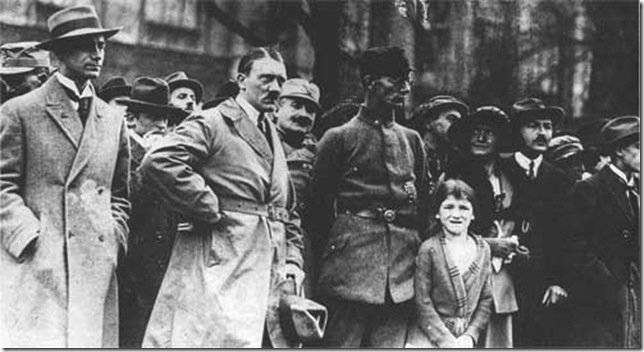
In 1923, disgruntled by the present state of affairs, the National Socialists joined forces with the authorities of Bavaria, who were represented by conservative separatists. The goal of such a union was to overthrow the regime that the Social Democrats established throughout Germany. At that time, Hitler was literally inspired by the events in Italy, when the Fascists, led by Mussolini in 1922, managed to actually seize power as a result of the march on Rome.
However, the two political forces had completely different goals. The separatist conservatives sought to declare Bavaria as an independent state, in which it was planned to restore the monarchical government of the Wittelsbachs. Hitler, on the contrary, after the overthrow of opponents, sought to create a strong unified state with a powerful core of central power. Bavaria Commissioner Gustav von Kar, the leader of conservative separatists, who has almost unlimited power on his territory, did not comply with the demands of Berlin, who called for the arrest of the leaders of the national socialist movement and shut down the print edition Völkischer Beobachter (“Popular Reviewer”), which has been fighting since 1921. body of the National Socialist German Workers Party. The official authorities of the Weimar Republic decided to destroy in the bud all the attempts of the National Socialist Party to seize power in Germany, eliminating at the same time both the leadership and the mouthpiece of the Nazis already armed at the time. But, after von Kara’s refusal to comply with the requirements of the authorities, the German General Headquarters, and in particular the commander of the Reichswehr ground forces, and in fact the commander-in-chief, Hans von Sekt, showed his firm position regarding the suppression of the insurgency by the forces of the Republic if the Bavarian government is unable to on their own. After such an unequivocal statement, the political leadership of Bavaria informed Hitler that for the time being it had neither the capacity nor the desire to openly oppose the Republican government. But Adolf Hitler did not intend to abandon his plans, he decided to force the Bavarian elite to oppose the Social Democrats in Berlin.
In the evening of November 8, 1923, in Munich, about three thousand people gathered in the Bürgerbräukeller beer hall to listen to the speech of the Bavarian Commissioner Gustav von Kara. Along with him in the hall were other representatives of the government: General Otto von Lossow - Commander of the Bavarian Armed Forces and Colonel Hans von Zeiser - Head of the Police of Bavaria. During the speech of the representatives of the local government, six hundred man attackers of the National Socialists surrounded the building, which von Kar chose to address the people, imperceptibly. On the street were placed machine guns, aimed at the entrances and exits of the beer hall. At that moment, Adolf Hitler stood in the doorway of the building, holding a beer mug in his raised hand. At about nine o'clock in the evening, the future Fuhrer broke a mug on the floor and, at the head of a detachment of armed comrades, rushed between the seats to the center of the room, where, jumping onto the table, fired a pistol at the ceiling and proclaimed to the crowd: "The national revolution has begun!". After that, Hitler informed the present residents of Munich that the Government of Bavaria and the Republic were considered deposed from this moment, the barracks of the armed forces and the land police were seized, and the Reichswehr soldiers and policemen were already marching under the National Socialist banner with a swastika. Also, Hitler did not forget to mention that the hall is surrounded by six hundred militants who are armed to the teeth. No one has the right to leave Bürgerbräukeller, and if the assembled ones do not subside, they will install a machine gun on the gallery.
The chief of police and the commander in chief, along with von Kar, were locked in rooms where Hitler, under the threat of physical violence, tried to force them to speak to Berlin. At that time, Colonel-General Eric Friedrich Wilhelm Ludendorff, a hero of the First World War, entered the beer hall, accompanied by one of the founders of the national-socialist German workers' party, Schöbner-Richter. Until the last moment, Ludendorff knew nothing about the plans of Adolf Hitler, which he expressed at all with the deepest perplexity. However, Hitler, who was at that moment in the hall, did not pay any attention to the words of the military and again turned to the Bavarians sitting in the hall. It was announced that a new government would be formed in Munich, Colonel General Eric Ludendorff was appointed immediately commander-in-chief, and Hitler himself modestly proclaimed himself an imperial chancellor. The increasingly scattered leader of the National Socialists demanded to recognize the swastika today, otherwise he promised to die tomorrow in the hall.
At this time, von Seisser, von Kar and von Loss confirmed their participation in a speech against the government of the Social Democrats in Berlin. Around 22: 00, Hitler went outside to try to resolve the conflict that had arisen between the retreating government units of the army and the police with Hitler's troops. At this time, attack aircraft under the command of Ryom seized the headquarters of the ground forces, but were surrounded by units of the regular army, which remained loyal to the German government. At this point, Otto von Lossow told Ludendorff that he needed to leave the headquarters to make the appropriate orders, while giving "the word of the Wehrmacht officer." Under various pretexts, they managed to leave Bürgerbräukeller and Gustav von Kar, and Hans von Zeiser. After that, the Commissioner of Bavaria immediately ordered the government to be transferred to Regensburg, and the National Socialist German Workers' Party and Hitler's assault troops (CA) were dissolved and outlawed. Gustav von Kar himself rejected his statements made in the Munich beer hall and declared them forced, stretched at gunpoint.
Hitler understood perfectly well that the attempt to seize power, which was left without any support from the Bavarian authorities, was a fiasco. The failed commander-in-chief, Ludendorff, in such a situation suggested that the leader of the National Socialists seize the center of Munich. The hero of the First World War hoped that, under the influence of his well-deserved authority, the army and the police would still side with the rebels. And the next day, on November 9 in 11: the 00 column of the National Socialists under the banner of the swastika moved to Mary’s Square (Marienplatz). Julius Streicher, publisher of the anti-Semitic newspaper Der Stumer, came from Nuremberg when he heard about the performance of the National Socialist German Workers' Party and joined the march right on Maria Square. He further wrote that at the beginning of the march police patrols did not hinder the movement of the columns. But when people, under the banner of Hitler's party, approached the headquarters of the ground forces, which they wanted to repel from the government, an armed detachment of police officers numbering about a hundred people barred the way. Adolf Hitler tried to get the cops to fold weapon, in response received only a refusal. A few moments later the shots rang out. It is not known who shot the first - either attack aircraft or police. A skirmish began in which a detachment of Adolf Hitler’s militants, six times the size of a handful of police officers, was completely crushed. Sixteen National Socialists were killed, including one of the closest associates of the former corporal, Schaubner-Richter. Goring bullet hit in the thigh. On the opposite side, the losses amounted to only three people. Many of the policemen in that skirmish were injured.
Witnesses of those events say that when the shots sounded, Ludendorff and Hitler, who had gained experience in the battles of the First World War, fell to the ground, fleeing bullets. In the future, the leader of the National Socialist Party tried to hide, his comrades in arms pushed him into the car and drove away. Ludendorff also moved to the ranks of the police, who parted in deference to the illustrious general. Recalling these events much later, Eric Ludendorff called Hitler a coward.
Over time, many coup participants were arrested and received various prison sentences. However, the punishment for the conspirators was very mild. For example, Hitler, as the organizer of an armed rebellion and an attempt to seize power in the Weimar Republic, received only five years in prison. Hess and Goering fled to neighboring Austria. Hess later returned to Germany, was arrested and convicted. In prison, the prisoners sentenced in the rebellion were very loyal: they allowed to gather around the table and discuss political issues. Hitler during his time in jail in Landsberg managed to write most of his work Mein Kampf, in which he outlined the basic principles and ideas of the national socialist movement.
One of the banners, under which the attack aircraft marched, subsequently became sacred to the fascists, since according to legend, the blood of the members of the National Socialist German Workers Party killed by 9 November 1923 was hit on it. Later during the ritual of the consecration of the banners, the bloodied banner was used by Hitler for ideological propaganda. And honors to the dead comrades and the celebration of the “Beer Putsch” day were held in Germany every year, starting with the arrival of his party to power and ending with the 1945 year.
Ludendorff was also arrested, but the court acquitted him. The colonel-general became a deputy in the German parliament, representing the National Socialist Party. He also participated in the German presidential elections, but lost, gaining only one percent of the vote. Later, finally disappointed in the ideology of the National Socialist German Workers' Party, including Adolf Hitler, he became a religion, leaving politics. Hitler did not forget his comrade and even invited him to take up the post of field marshal of the armed forces of the Third Reich, but was refused with the words: "Field marshals do not become, they are born." After the death of all the respected commander was buried with due honors. Gustav von Kar was killed during the "Night of the Long Knives" ("Operation" Hummingbird ") by the personal order of Adolf Hitler.
In the course of the "Beer putsch" no goals were achieved. Although nationalists still received certain political dividends. About the party and their movement, about which almost no one had heard in Germany until November 1923, learned everywhere. And the number of supporters of the ideas of Adolf Hitler began to grow rapidly. In addition, the future Fuhrer concluded that power could not be obtained by force or through armed rebellion. To begin with, one should gain broad support from society, and first of all from people with large capitals ...
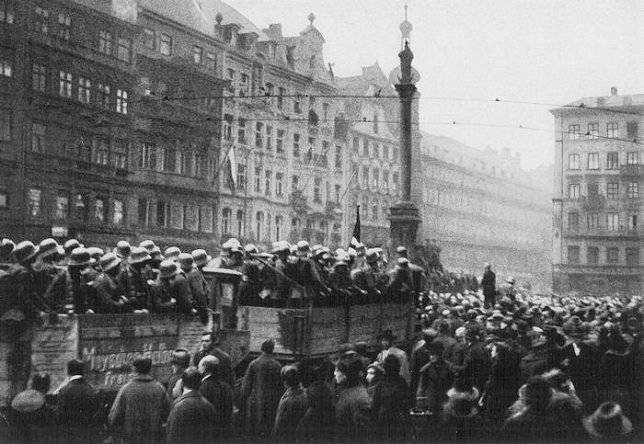
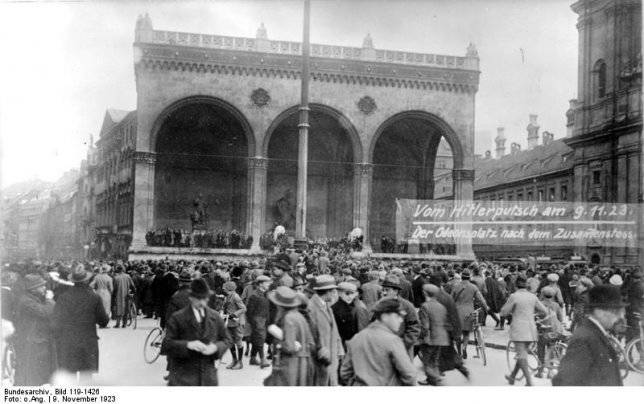
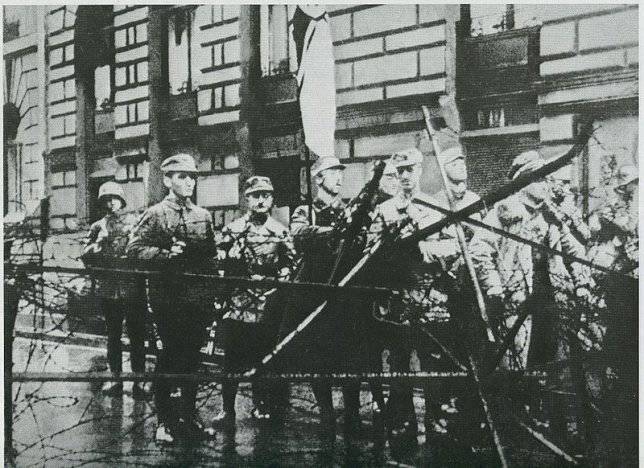
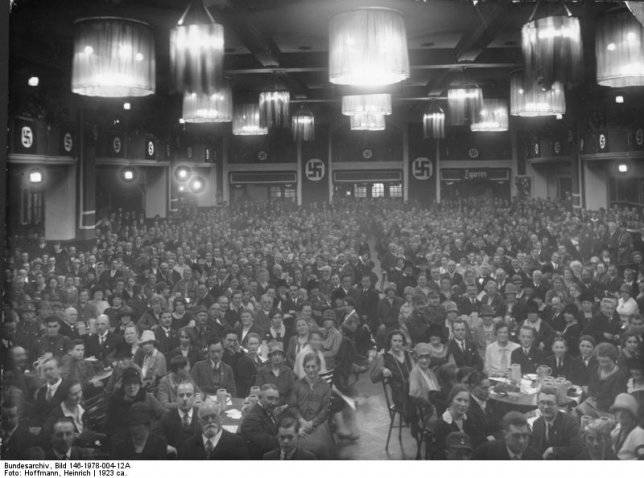
Information